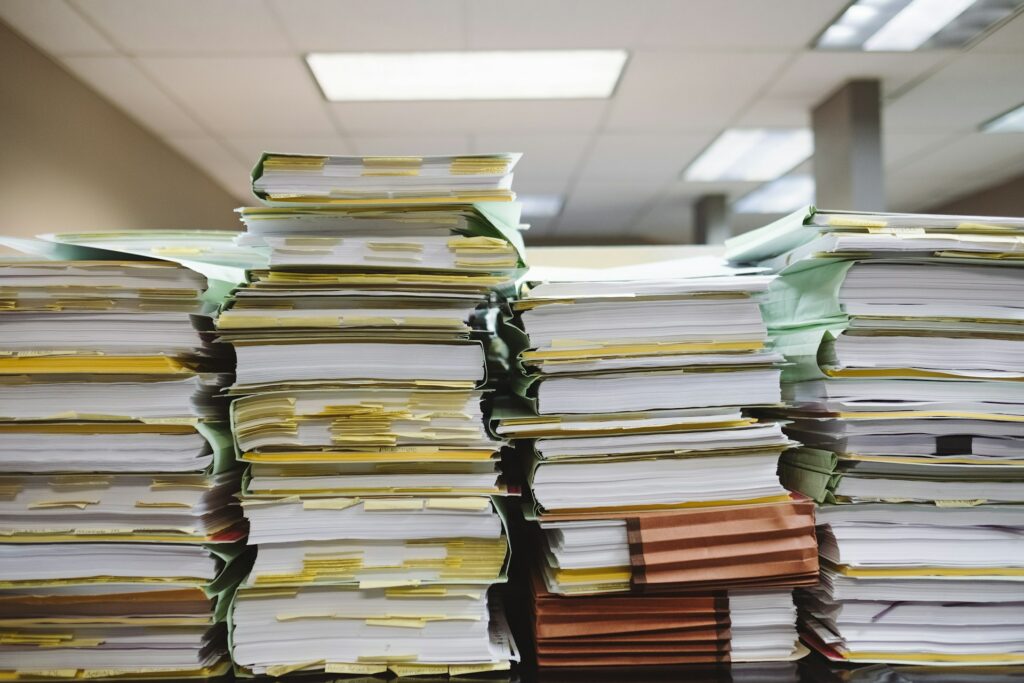In an age dominated by digital technology, it’s easy to overlook the importance of securely disposing of confidential paper documents. Yet, for most businesses, whether large corporations or small enterprises, paper documentation still plays a significant role in storing sensitive information. From employee personal data to client banking details or customer marketing information, confidential data resides within these physical documents. However, when it comes to disposing of this data, you can’t just throw it in the bin. There are crucial rules and regulations that must be adhered to.
Understanding the Law
The law surrounding the disposal of confidential documents is stringent and designed to protect individuals’ privacy and prevent data breaches. Under the Data Protection Act, businesses are legally obligated to handle and dispose of sensitive information responsibly. Failure to do so can result in severe consequences, including hefty fines and legal repercussions.
There’s a common law duty of confidentiality that applies to all businesses, emphasising the importance of safeguarding sensitive data from unauthorised access or disclosure. These legal frameworks underscore the significance of implementing robust document disposal practices to mitigate the risk of data breaches.
Consequences of Improper Disposal of Confidential Documents
Improper disposal of confidential documents can have far-reaching consequences for businesses, ranging from legal penalties to irreparable damage to their reputation. Here are five key repercussions:
Legal ramifications: Failure to dispose of confidential documents securely can lead to legal repercussions, including fines and sanctions imposed by regulatory bodies. Under data protection laws such as the GDPR (General Data Protection Regulation), businesses can face significant penalties for non-compliance, with fines amounting to millions of pounds. These penalties can cripple businesses financially.
Reputational damage: A data breach resulting from improper document disposal can severely damage a company’s reputation. Loss of trust from clients, customers, and stakeholders can have long-lasting effects on business relationships and brand credibility. Once trust is lost, it can be challenging to regain, potentially leading to decreased customer loyalty and reduced revenue.
Financial losses: Data breaches resulting from improper disposal can incur significant financial losses for businesses. Beyond the immediate costs associated with resolving the breach, such as legal fees and regulatory fines, businesses may also face litigation from affected parties. The fallout from a data breach can also lead to loss of business opportunities, decreased productivity, and increased insurance premiums.
Data ransom and hacks: Improperly disposed of confidential documents can become easy targets for malicious actors seeking to exploit sensitive information. Once that data has been compromised, businesses may find themselves at the mercy of cybercriminals, facing demands for ransom payments or dealing with the aftermath of a data breach. Data breaches don’t just happen online. If your business is throwing away sensitive documents, it’s easy for these to be sourced from the business’s bins.
Environmental impact: Improper disposal of confidential documents poses risks to data security and also contributes to environmental degradation. Dumping confidential documents in landfill sites can result in the release of harmful chemicals and greenhouse gases, polluting the environment and exacerbating climate change. Moreover, the wasteful disposal of paper contributes to deforestation and resource depletion, further exacerbating ecological concerns.
Choosing the Right Document Disposal Method
When it comes to disposing of sensitive documents, businesses have several options to consider. While some may choose to manage document disposal in-house, it’s essential to acknowledge the challenges and risks associated with DIY methods.
One common approach is shredding, where documents are shredded into small pieces to prevent reconstruction. However, relying solely on shredding poses several drawbacks. Firstly, it requires dedicated time and resources for employees to manage the shredding process, diverting their attention from core tasks. Additionally, shredded documents can still be susceptible to reconstruction by determined individuals, especially if not shredded thoroughly or if the shredder used is of poor quality.
Another DIY option is incineration, where documents are burned to destroy them. While this method is undoubtedly effective at rendering documents unreadable, most business leaders won’t want to get into the habit of starting fires on their premises and burning documents.
Working with a registered data destruction waste disposal partner, such as DCW, is the most reliable and efficient solution.
Benefits of DCW’s Data Destruction Services for the Disposal of Confidential Documents
DCW’s Data Destruction Centre offers a range of benefits to businesses seeking secure and compliant ways to dispose of confidential documents. Here’s how partnering with DCW can help businesses safeguard their sensitive information:
Comprehensive data destruction: At DCW, we employ cutting-edge technology and stringent protocols to ensure the complete and irreversible destruction of confidential documents.
Regulatory compliance: Our data destruction services are designed to comply with the latest data protection regulations and we hold the required certification including BS EN15713:2009.
Secure handling: We prioritise security at every stage of the document disposal process. Our secure handling procedures, including strict chain of custody protocols and 24/7 surveillance, ensure that confidential documents are protected from unauthorised access or disclosure.
Environmental responsibility: As a registered waste carrier, DCW is committed to environmentally sustainable practices. Our zero to landfill commitment means all waste we collect from any source is either recycled, reused, or sent to energy production.
Cost-efficiency: Outsourcing document destruction to DCW offers significant cost savings for businesses. By eliminating the need for in-house shredding equipment and dedicated staff, businesses can streamline their operations and allocate resources more efficiently.
Peace of mind: With DCW’s expertise and track record in data destruction, businesses can enjoy peace of mind knowing that their sensitive information is handled with the utmost care and confidentiality. From collection to destruction, DCW’s end-to-end service provides businesses with reassurance and confidence in their document disposal practices.
Partnering with DCW for data destruction services offers businesses a secure, compliant, and cost-effective solution for disposing of sensitive documents. With their comprehensive approach to data destruction, commitment to regulatory compliance, and focus on environmental sustainability, we help businesses protect their disposal of confidential documents and protect sensitive information. Find out more about our data destruction services here.
